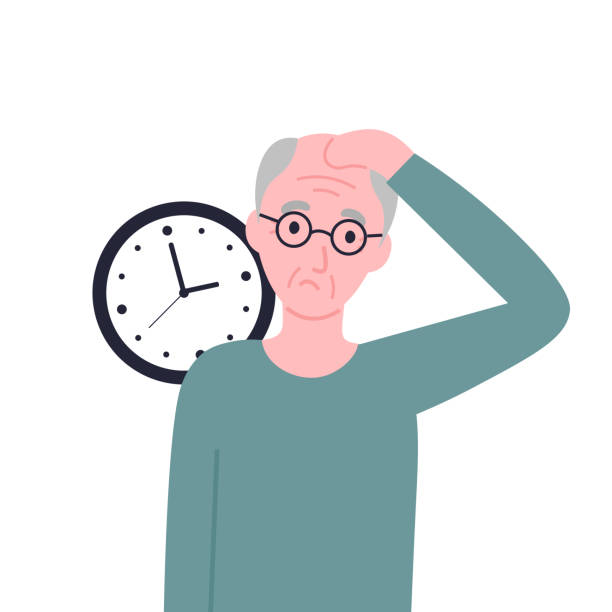Piano lessons at 60 could stave off dementia, scientists say
Millions of us love listening to all kinds of music. But for those in their 60s and 70s, taking the next step of learning to play could help keep dementia at bay. Nigeria’s box office records N346.6m revenue in March Injustice fueling insecurity in Nigeria – Ex-minister Scientists have found that it strengthened white matter […]

Grandpa confusion with time or location. Sclerosis or alzheimer’s symptom. Flat vector cartoon illustration.
Millions of us love listening to all kinds of music.
But for those in their 60s and 70s, taking the next step of learning to play could help keep dementia at bay.
- Nigeria’s box office records N346.6m revenue in March
- Injustice fueling insecurity in Nigeria – Ex-minister
Scientists have found that it strengthened white matter – brain tissue that degrades when memory and concentration problems set in.
The benefits came with six months of weekly lessons learning to tinkle the ivories, they said.
Numerous studies have found that playing a musical instrument can protect against an incurable condition.
But most have looked at professionals or those who have been playing since childhood.
For the latest research, scientists analysed if learning the piano later in life also helps the brain.
They recruited 121 men and women in their 60s and 70s who had never played a musical instrument.
Each had a brain scan before and after the experiment to measure changes in an area called the fornix.
This is made of white matter which plays an important role in cognition and memory but naturally declines with age.
This group was barred from playing, singing or even clapping in the research by Hanover Medical School, Germany, and the University of Geneva, Switzerland.
Scans revealed that the piano students lost little or none of the density of their white matter, suggesting no decline in brain function.
But those who did not take lessons had a significant decline in white matter density, increasing their chances of developing dementia and memory problems.
A report in the journal Frontiers in Aging Neuroscience said taking up music later in life could work wonders but only if students were fully committed.
“These changes in the brain do appear to be related to piano training intensity,” wrote the researchers.
